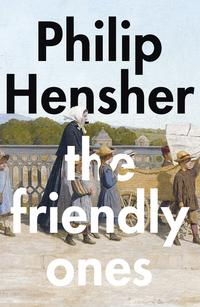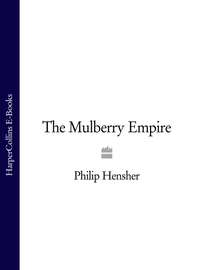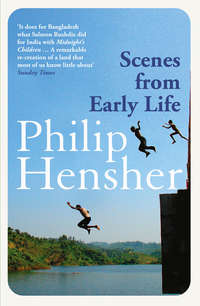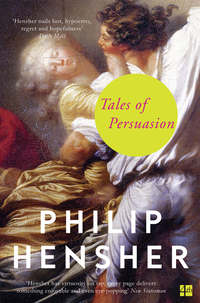
Полная версия
The Northern Clemency
The city had been made by fire out of water. And there was the earth, too, which Francis did see something of. Around the city, in earthworks and diggings, coal was still heaved to the surface. It was everywhere. The city made its money from steel; it was driven by its waters; it was built on coal.
Francis saw almost none of this, as they drove into Sheffield for the first time. He saw a nightmare terror of a landscape; he ascribed evil to it. He had no means of seeing the money and power that these sights produced; he saw black waste, and bursts of fire, and smelt that hard, mineral smell. But he should have looked: in 1974, Sheffield’s splendour was coming to an end.
And the motorway, with its raw, uncouth society of fire and mineral gave way now to something like a town: shops, offices, glass buildings, bridges and, at last, people. ‘I don’t remember any of this,’ Sandra said. It was a shock to hear a voice in the car: they’d been quiet since the Sheffield turn-off.
‘No, you wouldn’t,’ Bernie said. ‘We came up by train, don’t you remember?’ She subsided again; that wasn’t what she’d meant, Francis could tell. She was mostly just complaining.
‘I’d feel a lot easier if we could see the van,’ Alice said.
‘It’ll be at the house by now,’ Bernie said. ‘We’ll go up there to make sure, and then we’ll go off to the hotel. The men won’t want to start unpacking tonight.’
‘Where are they going to stay?’ Francis asked.
‘They’ll have made arrangements,’ Alice said.
Daniel, Jane and Tim drew the curtains and switched on the television. They watched Why Don’t You? – Tim fervently, Daniel making sarcastic remarks about the sort of kids who go on telly. Tim wanted to watch Blue Peter, but Daniel got up before it started and turned over to watch The Tomorrow People. Then the cartoon – it was Ludwig, which was rubbish. ‘Where’s Mum and Dad?’ Jane said. They were always home by now – they generally coincided, except on Fridays when Malcolm stayed late and Katherine came home before him on the bus.
The news started. It was boring. There was going to be an election. There’d been one before, Daniel remembered, and that had been boring too, because at school they talked to you about it and tried to get you to say who you’d vote for if you’d got a vote. At school, most of the kids said they were Labour but that was only because their parents were. There was one kid who said he was Liberal but everyone called him a poof, because the Liberals were poofs, everyone knew that. Sometimes Daniel said he was Labour but at others he said he was Conservative and once he told a girl he thought Communism was best. He didn’t really care. They were all old and boring.
‘I think the Conservatives are going to come first,’ Tim said, ‘and the Labour are going to come second and the Liberals are going to come third. That’s what I think.’
‘Why do you think that?’ Jane said, but Tim didn’t know.
They’d stopped talking. Even when Nationwide came on, and there was a story about a dog that drank beer, they didn’t say much. It was nearly seven o’clock before they heard the key in the lock. It was their mother. She looked tired and angry; for once her hair was untidy – she’d not really done it since the party the night before.
‘Has your father not called?’ she said.
‘No,’ Jane said. ‘Where is he?’
‘I don’t know,’ she said. ‘He didn’t come to pick me up. I tried to call the office but they’d all gone home. I came home on the bus.’
‘These two’ve been in all day,’ Daniel said. ‘He didn’t call, did he?’
‘No,’ Tim said. ‘No one’s called.’
‘I don’t understand it,’ Katherine said.
For some reason, Jane felt she couldn’t say she’d seen him at lunchtime. He hadn’t wanted to be seen; she didn’t feel she should let on.
But Daniel said, ‘He came home at lunchtime. And then he went out again.’
Katherine looked at him. ‘What did he do that for?’
‘How should I know? I didn’t see him. I was at the pool all day. Jane saw him.’
‘Jane,’ Katherine said, ‘did he say anything? I don’t know where he’s got to. If he’d gone to the pub he’d have phoned, surely.’
‘He never goes to the pub,’ Daniel said, ‘except on Fridays.’
‘But did he say anything about being late?’
‘I only saw him,’ Jane said. ‘I didn’t speak to him. I was in the garden. He didn’t see me, I don’t think.’
Katherine looked at her. It sounded strange, your family avoiding each other, hiding and not speaking. But it made sense to all of them. ‘I expect he’s been held up,’ she said. ‘Let’s not worry just yet.’
‘He’s never held up,’ Tim said, his voice emphatic. ‘He’s always home by now.’
‘He’s got a good reason, I’m sure,’ Katherine said. ‘Let’s not worry. Have you had your dinner?’
The children looked at each other, surprised. The idea of making their own dinner was a new one. No one had ever suggested it.
‘All right,’ Katherine said. ‘Just let me get changed. There’s the food from last night to finish up. That OK?’
‘Aren’t we going to wait for Dad?’ Daniel said.
‘He’ll be home soon,’ Katherine said.
They’d forgotten about the party food, which was sitting in the fridge on two big plates under foil, not separated out now, but the remains of half a dozen dishes jammed together. The vol-au-vents were flaking, soft and clothy, the Coronation Chicken a little brown and crusty round the edges; the rice salad, flecked with red peppers, hadn’t really been touched the night before, and it didn’t look nicer now. Everything seemed sad and unfestive, like tinsel in the full light of day. Jane and Daniel took it out, and she set the table with five places. There was some lettuce and tomatoes too; she made a salad, put out the salad cream.
‘I don’t like rice,’ Tim said, following her from the kitchen to the dining room. ‘I don’t like that yellow stuff either. I want beans on toast.’
‘You be quiet,’ Jane said. ‘You’re too fussy about your food.’
‘I can’t help it.’
Katherine came down, her face washed and recomposed. ‘Good girl!’ she said brightly, when she saw Jane had set the dinner out. They ate; there was nothing to wait for with the food. Daniel ate quickly; he was always hungry, and nothing got in the way of that. Katherine filled a plate for Tim, ignoring his protests; he poked at it, eating a little here and there. Neither he nor Daniel was thinking about their father. Jane put food on her plate – a strange assortment, like the hopeful random selection you make at a party, not necessarily meaning to eat everything but taking a bit of each. She watched her mother nervously; she was looking around her, on edge, not eating. After a few minutes, Tim said, ‘I don’t like rice,’ again. ‘I don’t like those red things, those peppers, in it.’
‘Then don’t eat it,’ Katherine said abruptly. ‘Go hungry.’ She got up sharply – almost as if she were going to strike him – and went into the hall. They could hear her rifling through the address book by the telephone. Jane and Daniel exchanged a short, scared look. Their parents had suddenly altered. From the hall, the noise of dialling.
‘Hello?’ Katherine said. ‘Hello, Margaret? This is Katherine Glover, Malcolm’s wife…Yes, that’s right, at the Dennises…Yes, I remember. I know this sounds a little strange, but did Malcolm have anything – Oh, I see…Really? That sounds unusual…No, I didn’t. Well, I’m sure there’s some perfectly innocent explanation – he’ll be home soon, I expect. Thank you so much – I hope I’m not disturbing you…’
And she put the phone down, then came back into the dining room. She didn’t sit down and go on with her dinner. She just stood there. ‘That was your father’s secretary,’ she said, ‘Margaret. She said he left the office at lunchtime and didn’t come back.’
‘He was here at lunchtime,’ Jane said, ‘and then he went out again. I thought he’d gone back to work.’
‘Yes,’ Katherine said. ‘You said.’
She went to the window, peered out through the net curtains. She seemed lost in thought. ‘Look,’ she said, ‘the new people are moving in. There’s a removal van.’
‘It came this afternoon,’ Daniel said, still eating. ‘They’ve left it, they’ve not started unpacking the furniture.’
‘Did you see them?’ Katherine said absently.
‘No,’ Daniel said. ‘They’ll be moving in tomorrow, I suppose.’
‘I wonder,’ Tim said, ‘where my dad’s gone.’
‘You don’t think there’s anything wrong, do you?’ Jane said. She remembered the stories she’d constructed in the garden as she saw the figure in the window. It seemed odd already that she’d imagined burglars.
‘No,’ Katherine said firmly. ‘There’s nothing wrong.’
But then she went out again and started making phone calls, to the hospitals first and, finally, the police. One by one the children took their plates to the kitchen; Jane washed up, listening to the repeated query in her mother’s politest, most telephone voice. It seemed to her that there was something of blame and guilt in it. She could not understand it.
For years Katherine had been in the habit, in the mornings, of getting into the car with the children and Malcolm. First, Malcolm dropped off Daniel at Flint, the senior school – he insisted on being dropped a good three hundred yards from the gates, and she knew for a fact that most of his friends had exactly the same arrangement with their parents – then Tim, at his primary school, and Jane at the new middle school, less self-consciously getting out at the gate. Finally Malcolm dropped her in Broomhill with its parade of shops and went off to work.
That had been her routine since Tim started school. She did it almost every day, saying, as if it needed justifying, that it was nice to have a regular routine each day, and hers was to buy the groceries before ten each morning, then head back to do the housework. In reality, she hadn’t minded the housework when Tim was too small to go to school, just as she didn’t really mind it when the children were on their school holidays. It was the days when the four of them set off, leaving her on her own, with no one to talk to and nothing but dull tasks to do, that wore her down. The noise of Radio 2, so mild a burbling complement to breakfast, had to be turned off, or had to be listened to as if it were company; so, by the time Tim was seven, she had taken to getting into the car, going to Broomhill and filling the morning with the day’s small shopping – the fishmonger or the pork butcher, the little supermarket, the greengrocer – maybe the bank, and definitely the little tea-shop for a cup of coffee and a piece of cake.
Crosspool was closer to shop in, of course, but it was a 1920s development, a shabby parade with holes in the Tarmac and a hardware shop with Chinese-made plastic flowers in the window, and no tea-shop. Broomhill was stone-built Victorian villas – it was a part of the city that hadn’t been bombed in the war. It had a dress shop, a bookshop, and the greengrocer sold courgettes. It was a nicer place, so Katherine put up with the tinny flavour of the brown-coloured filling in the cakes at the tea-shop, the burnt crusty nubbings of Mrs Milner’s rock cakes a guarantee of Broomhill’s middle-class, non-shop-bought authenticity. They couldn’t have afforded a house there, though.
Malcolm, not really thinking, often said it would be more sensible to go to the supermarket once a week, and was talking about buying a chest freezer to put in the utility room, but she discouraged him. At the words ‘chest freezer’ she saw her life retreating: lifting deep-frozen carcasses from their bed of ice, spending days watching joints defrost, drip by pink drip. In any case, he didn’t know that when she said she’d done the shopping by ten, she was dissembling: it was rare that she was home before two – she had so many ways of passing the time. A different woman, she often thought, would have dropped in at the pub for a gin and tonic; the Admiral Codrington was eminently respectable, apparently.
Two years before, Mrs Milner had said to her, ‘There’s a florist’s opening where Townsend’s the ironmonger’s used to be.’ She was sitting at Katherine’s table: she liked to take the weight off her feet when they weren’t too busy and, in any case, the eight or nine women who came in regularly, sometimes inviting each other to share a table, more often calling across if the conversation became more than usually interesting, hardly counted as customers to make a fuss of.
‘That’s a shame,’ Miss Johnson, the retired bank clerk, said. ‘It was useful, Townsend’s, for anything small about the house. I’d been hoping there’d be something useful opening up in its place.’
‘You can always buy a box of screws in Woolworth’s, I dare say, Mary,’ Mrs Milner said.
‘It’s not the same,’ Miss Johnson said. ‘It was a useful shop to have round the corner, and I don’t believe I’ve bought a bunch of flowers since Mother died, so a florist’s no use to me.’
‘I like a sprig of rosemary with lamb,’ Mrs Goldsmith said, intruding into another conversation. ‘I think it brings out the flavour.’
‘I don’t suppose Townsend’s found it easy to keep going, you buying a picture hook once every two years,’ Mrs Milner said to Miss Johnson. ‘Those old family firms with everything in little drawers and the assistant taking fifteen minutes to find anything, they’re on the way out, you mark my words. I think it’ll be lovely to have a florist nearby. I might even invite them,’ she went on grandly, ‘to supply the tea-shop with regular bouquets.’
‘That’ll be an improvement,’ Miss Johnson said, somewhat nettled, and poking at the limp anemone in a thumb-sized vase on her table. ‘Goodness, what a day – you’d never think it was June.’
‘I’ve never known June such a wash-out,’ Mrs Milner said, ignoring Miss Johnson’s rudeness. ‘As for the florist’s, they’ll all be buying flowers from it once it’s there, I think you’ll find.’
‘It’s a nice idea,’ Katherine said. ‘You never know – it’s on the way home from my husband’s work. He might take to stopping off there.’ None of the other ladies knew Malcolm, but politely suppressed ribaldry ensued.
‘It’s terrible, the parking in Broomhill,’ Janet Goldsmith said. ‘I’d remember that, Katherine, before you get your hopes up. Have you seen the new knee-length skirts in Belinda’s? Well worth a look.’
‘Buy yourself flowers and save the heartbreak,’ Mrs Milner said, but just then a man, a stranger, came in, bringing a burst of rain with a flapping umbrella, and she got up to fetch him the list of cakes.
Katherine hadn’t noticed the shop-fitting work going on at Townsend’s old premises, but over the next few weeks she took some interest in its progress. As the work came towards a conclusion, it became obvious that it was going to be a high-class florist’s, a cut above the two or three purveyors of scrubby chrysanthemums, tired-out roses and oversized daisies in unnatural colours to be found in the town centre. As soon as the plastering was finished, the decorators put up wallpaper in thin Regency stripes, red and white. Katherine had thought about Regency stripes for her own hall – and she watched with approval when the shop sign, in good solid brass Roman lettering on a dark-blue painted background, went up: REYNOLDS, just that. It wasn’t long before the shop opened, and Katherine went in on the first morning. She had plans.
Katherine had had jobs in the past. Before she knew Malcolm, she had worked in a solicitors’ office, a family firm in Sheffield that had taken her on when her father put her in the way of one of his old golfing cronies. She’d like that job. Nice, it had been, hurrying out of the office in Peace Square, down the steps of the Georgian building, sandstone and worn hammocky, at five thirty to meet her young man waiting there with, often, a protective umbrella held high – Katherine had a beehive, high and shiny as precariously roped-on furniture. It was a shock to remember that the young man must have been Malcolm. There hadn’t been any other young men. He’d been too shy to come in and wait with the senior partner’s secretary even when it was raining, apparently seeing a solicitors’ firm, with offices in a Georgian house in Peace Square, as in a social category above that of a Yorkshire building society.
The beehive had lasted after their wedding, but not long after, the changes of fashion and of her own status dismissing it. And the job at the solicitors’ went, too, Mr Collins having opinions about married women in the office that even then he acknowledged as old-fashioned. She didn’t mind, never having been brought up to stay where she wasn’t wanted, and got another job, actually, in a private boys’ school, a day school, a decade old but housed, like the solicitors’, in a building meant for more domestic and gracious purposes, a mill-owner’s town-house in Broomhill, blackened with soot. A neat line of iron stumps, like orphaned children’s teeth, marked the line where the railings had been before the war. There was no prohibition on married women here, and, indeed, they were employed in preference to virgins, though not through any valuing of motherliness – it was not that sort of school, or that sort of time. The masters wore gowns and often carried, actually carried canes through the corridors; rather, it was presumed that the experience of coition had removed from women any illusions about the male nature. Katherine helped out, her tasks too vague and multiple in that scandalous school to remember, let alone define. They went from sticking plasters on knees and sweeping up leaves to ‘playing the pianoforte’ in assembly and taking the boys to Forge Dam on a local-history expedition, shivering informatively in the laid-on rain. Everything fell under her title, calculated to distinguish not her but the school in the eyes of prospectives, of Headmaster’s Secretary. She was a sort of alternative to the headmaster’s wife, who was a hooting memsahib with the week’s dinners on a list. She’d quite liked that job too; at the end of her day, she could come home and, as never before or since, make Malcolm laugh about it. She had wondered if he wasn’t a little too serious, even as she was marrying him; now he was relaxing, and laughing. It was a happy time. It never occurred to her that stories about terrible schools are always funny to anyone.
The jobs ended with Daniel, and then there was Jane. Maybe, as Jane was going to school for the first time, maybe then Katherine was starting to say to herself the sorts of things that women, even in Sheffield, were saying to themselves in the mid-to-late 1960s, with a sense of what very mid-to-late 1960s things they were to be thinking at all. She might well have been thinking that she could, after all, go back to work in some way. But then Timothy came along – how had that happened? She couldn’t remember having sex after 1962 – but she couldn’t remember buying Malcolm’s socks either, although she must have done. Maybe it had been a part of her unremarkable domestic routine that had gone on automatically. It was a couple of years after Tim had started school before she dared to think of working, and it was only the florist’s opening that put in into her head.
‘Ah,’ the man said, as she came through the door of Reynolds’ that morning. The door was open, the flowers still in boxes, the ranks of gerberas like rows of medals, the chrysanthemums like mop-headed boys, the tulips shocked and upright as corn. The empty vases and buckets were arranged on the shelving display, which ramped up against one wall; the other was covered with a sheet of mirrored glass. ‘Ah – good morning. Good morning,’ he said again, more cheerfully.
‘Are you open?’ Katherine said.
‘Yes, absolutely,’ he said. ‘Just setting everything out. It’s our first morning.’
‘I know,’ Katherine said. ‘We’ve been looking forward to it. Well, you’re getting there steadily.’
‘And you’re our first customer,’ he said. ‘How hilarious. That calls for something, I feel. I don’t know what, exactly. There’s no kettle, so I can’t offer you a cup of tea, I’m afraid. Perhaps I can give you your choice of flowers gratis, as my first customer. We’ve got plenty of those.’
‘No,’ Katherine said. ‘Start as you mean to go on.’
‘That’s all right, then,’ the man said, with a little gesture of relief. ‘Why don’t you sit down? You’re not in a hurry, are you? Sit down and talk to me. I’m just putting the flowers out and then you can choose properly. I’m Nick, by the way.’
‘I’m Katherine,’ Katherine said. ‘Is it just you working here?’
‘Well, at the moment,’ Nick said, lifting a row of yellow gerberas from their box in a single fine movement. ‘I haven’t had time to find an assistant, though of course I’ll be needing one. I suppose I’ll have to advertise and interview and my brother’ll want to have a say, and it all seems a bit…’
Just then Miss Johnson walked past the front window, her green tartan shopping trolley rattling behind her; she peered into the shop and saw Katherine, sitting on the one chair, apparently at ease with a young man struggling with flowers. Her mouth shut sharply. She walked on. She must have been on the point of greeting the new florist, but now she wouldn’t, and Nick would never know he might have been forgiven.
At home, Katherine did not immediately tell anyone that she’d taken a job at the new florist’s in Broomhill. She put the jazz-modern yellow and brown plates, twenty years old, in front of Malcolm, Daniel, Jane and Tim; with oven gloves she put one down for herself. On the dining-table was a red tablecloth. She went back to the kitchen, took off the oven gloves and returned. Nothing was really hers. The plates had been a gift from Malcolm’s mother – a wedding present. She’d chosen it, Malcolm’s mother, as the sort of thing a young couple would like, near on twenty years ago. Now, it looked exactly that: something nobody in particular had ever liked, just some postulated abstract entity of a young couple. The dining-table, another gift or cast-off; a repro of something Edwardian, again Malcolm’s mother’s – ‘Your father liked it,’ she’d said, in a challenging tone, as if Katherine and Malcolm were proposing to get shot of it and not her. Anyway, they’d taken it when Malcolm’s father died and his mother had announced that she’d be moving to a cottage in Derbyshire. Snowed in every winter now, too. Katherine put down the five plates, with chilli con carne on them, a new way to make mince interesting mid-week. Malcolm looked at his, perhaps at the patina of violent orange grease surrounding the mound of meat, then started to eat. Really, only the red tablecloth and the melamine-handled cutlery in this room had been her choice. The rest of it represented agreements, and all of it was potential lumber in Katherine’s mind. And that summed it up. She felt all she’d brought to this family were innumerable and faintly pathetic minor possessions, effortlessly chosen but easily replaced with something similar, or something quite different. The substantive structures of their existence, like the table they ate around every night, had been foisted on her without anyone ever considering that she might like to choose something herself.
She would start work a week later – no point in hanging about, Nick had said, with evident relief. She’d dropped in once or twice since then to talk over her tasks – it wasn’t necessary, Nick said, but she was in Broomhill anyway, as she often was.
‘Here, let me,’ she’d said, on one of her drop-ins, approaching him with opening arms to take a sheaf of sixty yellow roses from him. His lightly bearded face had a suddenly pagan look, a spark of alarm, like an intelligent animal’s.
‘No, no,’ he said, controlling the emotion, looking now amused, boss-like. ‘I can’t let you work yet, not until I start paying you.’
‘Well, I could start properly today,’ Katherine said. ‘You wouldn’t have to pay me the full day. You obviously need help.’
‘I can’t,’ Nick said. ‘I haven’t had a chance to talk it through with my brother. It’s half his money.’
‘Where is he?’ Katherine said.
‘New York,’ Nick said. ‘I’ll mention it at the weekend.’
‘Is he coming over, then?’ Katherine said, treading cautiously. She was inexperienced in lives and brothers like that, New York brothers; she felt in danger of saying something that showed where she was and where she’d seen. What she was.








